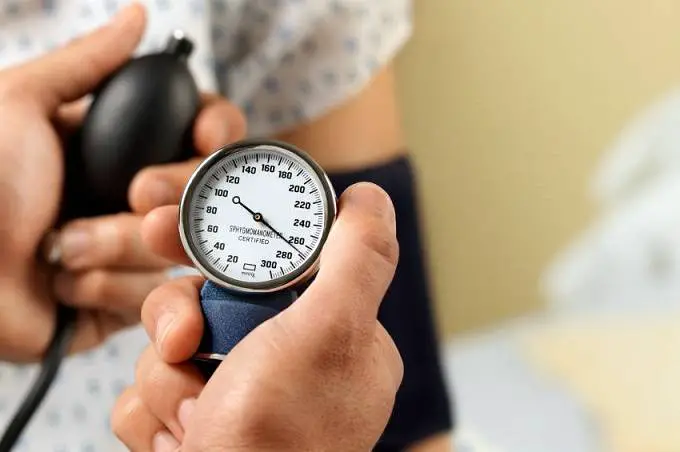Hypertension, or high blood pressure, is a diagnosis tens of millions Americans hear from their doctor and one which many more aren’t even aware of.
The bad news? Without treatment, high blood pressure can lead to heart disease, kidney failure, stroke, and many other illnesses. The good news? it’s completely preventable.

Measuring blood pressure; image source: healthiack.com
Exercise, diet and lifestyle changes have transformed how high blood pressure is handled within the medical community, and there are easy, manageable ways for anyone to tackle (and prevent) it naturally – check out these top 5:
Drink Up!
There are some drinks that lower blood pressure so significantly their effectiveness rivals prescription drugs. Natural drinks that contain vitamins and minerals which induce a physiological response in the body aren’t as exotic as you might think. Beetroot juice, for example, can be found in your grocery store and has been shown in multiple studies to help lower blood pressure, sometimes within hours of drinking a glass.
The naturally-occurring nitrates in beet juice are converted into nitric oxide in the body which helps your blood vessels expand, lowering the pressure (or force) your body needs to circulate blood through your system.
Other drinks that lower blood pressure include:
- pomegranate juice,
- milk,
- hibiscus tea,
- and cranberry juice.
Just remember, juice “cocktails” are not the same as drinking the natural version of the libation, and their high sugar content can counteract the positive effects you’re looking for.
Exercise!
Regular physical fitness that gets your heart pumping literally strengthens your heart. When your heart is stronger it doesn’t need to work as hard to pump blood around your body, reducing the force (blood pressure) on your arteries.
In addition, regular exercise (along with diet) is key to maintaining a healthy weight, which also helps prevent hypertension.
Which type of heart-strengthening exercises are best for lowering blood pressure? Moderate aerobic activities like brisk walks, jogging, swimming, dancing, bicycling, and tennis are perfect, while simpler activities like climbing stairs or mowing the lawn do the trick too. Think of any exercise you can do for 30 minutes a day that gets your heart rate and breathing rate up.
Stress Less!
Stress less – easier said than done, right? Stress-fighting techniques and activities don’t have to be complicated. Sure you can’t avoid your mother-in-law all the time, but you can find stress-busting solutions that calm your overall mood. Listening to peaceful music and lighting a candle with a scent you love while you meditate is an easy, effective place to start.
Practicing yoga also aids in easing feelings of stress and anxiety. The kind and mindful approach of yoga is evident in the meditation, gentle, flowing movements, and deep breathing it requires. Another great, simple stress reliever is coloring, which helps you focus your thoughts in creative, positive and productive ways.
Volunteer!
Helping others and giving back to your community doesn’t just give you warm fuzzies – it can also benefits your physical and mental health. Volunteering helps produce endorphins, the feel-good hormone that promotes feelings of positivity and pain relief. Volunteering also encourages you to be more active, whether it’s lifting boxes at the local food bank or walking dogs at the animal shelter.
Volunteering is particularly beneficial to older adults when it comes to fighting hypertension. A study published by the American Psychology Association found that adults over 50 who volunteered regularly were less likely to develop high blood pressure than those who did not volunteer.
Reduce Sodium in Your Diet
This is a biggie for lowering blood pressure. The role of sodium in the body is vital – working with potassium, the two form a delicate process of aiding the kidney in filtering excess fluid out of the body. When you eat too much salt, your body retains extra fluid, adding strain to not only the kidneys to work harder, but pumping up your blood pressure and negatively affecting the heart, arteries, and brain.
Reducing your salt intake is easy with a few helpful tips:
- Eat less processed foods,
- cook your own food at home and flavor with herbs and spices instead of added salt,
- pay close attention to nutrition labels on the foods you buy,
- and talk with your doctor about recommended daily sodium allowances.
Additional hypertension preventers include staying hydrated, eating a healthy diet of fruits, vegetables and whole grains, limiting alcohol intake and quitting smoking. If high blood pressure has you stressing out, don’t forget that you are in more control of your body than you think! Small, manageable lifestyle and diet changes can make a huge difference fast, and naturally.









































